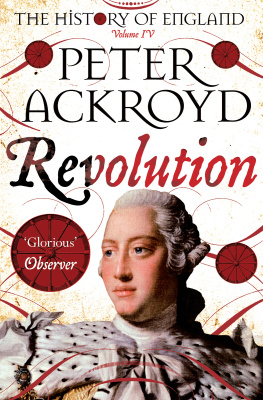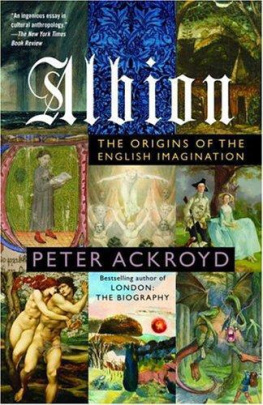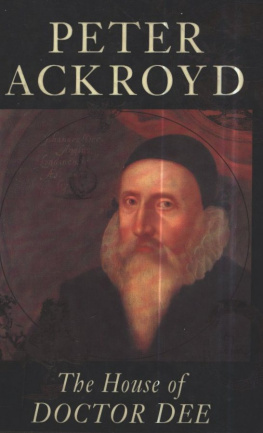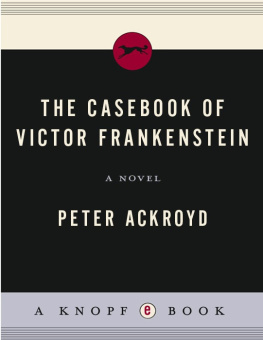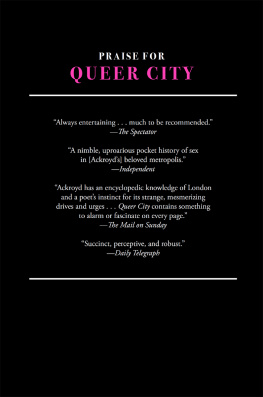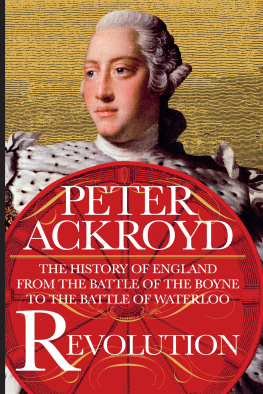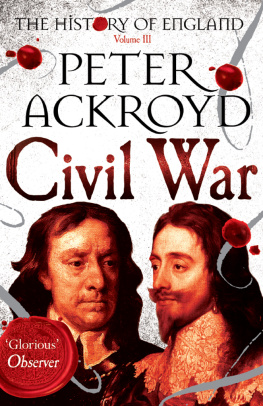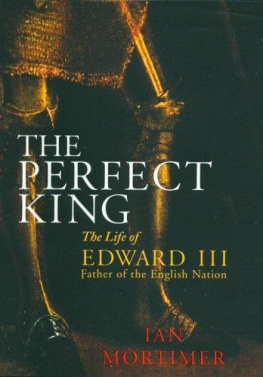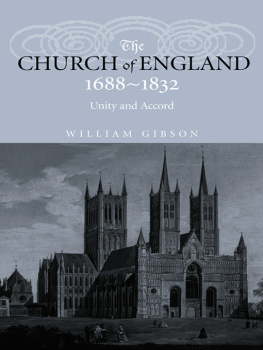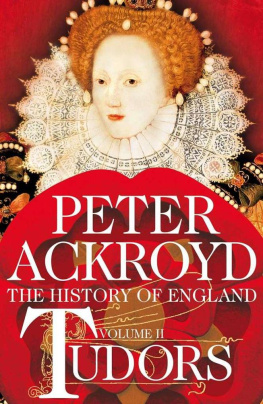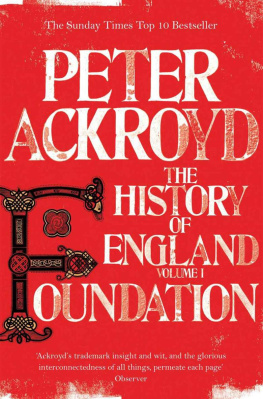Peter Ackroyd
THE HISTORY OF ENGLAND
V OLUME IV
REVOLUTION
PAN BOOKS
Contents
List of illustrations
What do you think of predestination now?
The king had fled, in the face of an invading army. Even though James II had reached the safety of France and William, prince of Orange, was ensconced in Whitehall, it was not at all clear who was the true sovereign of Britain. So a Convention, half way between an assembly of notables and a parliament, was called Since no recognized king was readily available to call an election it was a somewhat hasty and improvised affair; but it was not without the most important consequences. It marked a revolution in the affairs of state.
The Convention met towards the end of January 1689 to consider the respective positions of James and William; there was at once a conference on the meanings of a throne deserted or vacant, a learned debate but one driven by the need to exclude for ever the absent king. The Commons finally declared that James II had abdicated, but there was no such term in law so this was essentially a legislative fiction. Yet there was no plausible alternative to the usurpers rule. As an authoritarian Catholic, James had been the worst possible monarch for a strongly Protestant nation. The fact that a group of notables had asked William of Orange to intervene in an increasingly fraught situation had granted a measure of legitimacy to the princes easy conquest. Yet he could not be seen as a king by conquest; that would bring back horrid memories of William I, whom good republicans loved to hate. So he had somehow to be proclaimed as king by right, a conveniently loose description that might cover almost any set of circumstances.
By the beginning of February a declaration of rights had been composed by the members of the Convention. One of its clauses forbade the establishment of a standing army in times of peace, regarded as one of the most obvious tokens of arbitrary royal power. Other clauses tended in the same direction. Laws could not be executed or suspended without the consent of parliament; taxes could not be raised for the benefit of the Crown without parliamentary agreement; freedom of speech in parliament was paramount and, in the final clause of the declaration, parliaments ought to be held frequently.
The Declaration, later the Bill, of Rights was formally recited to William and to his consort, Mary, daughter of the deposed king; they sat in state in the Banqueting House and, after William had affirmed that we thankfully accept what you have offered us, they were proclaimed to be conjoint sovereigns. It was a delicate juggle. It could only be assumed that William had understood and accepted the Declaration as a prelude to his crowning, as William III, but he had not been pressed to any formal oath of assent. Many now believed, however, that he had been granted sovereignty by way of parliament. The divine right of kings had come to an end. Daniel Defoe declared later that parliament had an Unbounded Unlimited Reach, a kind of Infinite attends their Power.
Williams reticence on the substance of the declaration did not necessarily imply consent. He was by no means enamoured of its principles; it was a very English production, being almost entirely non-theoretical, but he knew well enough that it circumscribed his power. He said that he had no wish to confirm some of its clauses but that the condition of his affairs overruled his inclinations; later he complained that the worst of all governments was that of a king without treasure and without power. On the day after the marquis of Halifax tendered the crown to him in the Banqueting House he told the marquis that he fancied, he was like a king in a play. But he had to maintain his part at all costs.
A combination of gentry and aristocracy had in effect formulated a settlement that eliminated the threat of royal absolutism and protected property from arbitrary seizure. They were not interested in the idea of remedial legislation by parliament for the sake of social good or some benign notion of order. They wanted the rewards for themselves only. So was crafted what became known as the glorious revolution promoted in theory by divine providence but supervised in effect by an organized elite, an aristocracy and oligarchy bolstered by the support of the landed gentry; the members of this elite would retain their power for the next 200 years.
The new order was bitterly opposed by those who believed that former oaths of loyalty to the deposed king could not and should not be broken; if the most solemn pact could be overturned, where could proper order and authority be found? The objectors, who refused to swear a new oath of allegiance to William and Mary, became known as non-jurors. Some of the most senior clerics in the country were of their number, among them William Sancroft, archbishop of Canterbury. Eight bishops, and 400 clergy, adopted his stance. At the coronation of William and his consort in Westminster Abbey on 11 April, the archbishop was absent; the bishop of London raised the crown. Sancroft himself was forced into retirement in the following year.
The non-jurors were the measure of a divided kingdom; many of them became Jacobites, or supporters of the exiled James, in spirit if not in practice. It cannot be doubted that loyalty to William was distinctly muted in many parts of the country, and that he was conceived by some to be a foreign king imposed in the first place by force. Yet what could be done? The crown was on his head. Indifference, or resignation, was the inevitable response.
The Convention was converted into a parliament by the new king, with the simple expedient of delivering a speech from the throne to both houses. In his coronation oath he had consented to govern according to the statutes in parliament agreed on, and the laws and customs of the same; it was a sign of the new balance in the constitution. Yet the relationship between Crown and parliament was not necessarily happy; in a further indication of their new power the members refused to grant William a revenue for life, and failed fully to fund his approaching campaign against France. They had learnt the unhappy lesson of the former king who had been able to support himself without their aid. William was as a result wholly reliant upon frequent parliaments to service his debts. Parliament now met every year, with sessions lasting for several months; general elections were held, on average, every two years. This quickened activity of course raised the temperature of the political atmosphere, encouraging what came to be known as the rage of party.
This was not to the liking of the new king who detested fractious politicians. He did not speak good English, and was in any case reserved in nature to the point of being sullen or morose. He always longed to be back in his native land, away from the hypocrisy and importunity of the English court. He hated pomp. His manner and appearance did not necessarily recommend themselves to his new subjects. He spoke slowly and briefly. He was by nature calculating, cool and methodical. Though he was of slight frame he managed to carry himself with authority; he was an asthmatic, however, and his conversation was interrupted by a continual deep cough. He soon removed himself from the fog and damp air of Westminster to the relatively healthy ambience of Kensington. He was generally severe, or even solemn, and was rarely cheerful; only with his inner circle of Dutch advisers did he relax.
It was rumoured at the time that members of his court were homosexual and that, in particular, two of Williams favourites, the first earl of Portland and the earl of Albemarle, had been granted half a million acres of land. The wife of Philippe, duke of Orlans and the French kings younger brother, Princess Palatine Elisabeth Charlotte, asked if the court of William had become a

